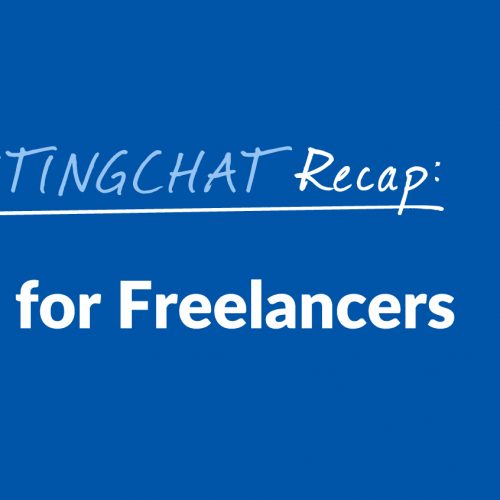How I Got Started Freelance Writing Online: A Day in the Life of a Content Writer
Freelance writing online—a part-time gig to fill your spare time, a common misconception that many have. Sure, writing online can be a fun hobby for some; however, for others, it’s a passion that fuels a fire that some simply don’t understand. Content writing is oftentimes a thankless job—in some cases, you work hours on end researching and toiling over a keyboard creating an outstanding piece of content that doesn’t even garner you a byline. So why bother doing it? Here’s my answer: because it’s my passion. I’ve been a writer my entire life—I kid you not. Before I could even write, I was telling wild stories that my family would write for me so I could have a copy to show off to my friends, family, and maybe my own children someday. That passion turned into a love of reading and a love of creation, one that spurred my love of education. An odd combination, sure, but it all comes together, I promise! I knew college was my dream in elementary school, but when the time came, choosing what road I was going to take and what I was going to do with the rest of my life… Talk about an impossible task! Freelance Writing Online: From Dream to Present & Future What started as a love of education and wanting to educate other’s, quickly fizzled out as soon as the job market told me that becoming an educator wasn’t ideal. Teachers were getting laid off left and right, so why bother wasting my time and tuition money in a dead-end dream? Okay, so it was time to choose a fallback option. I loved to read and create, so English was an obvious choice, but what kind of job could I get as an English major… Besides teaching English? Enter in Dr. Terri Fredrick, and there began my journey in professional and technical writing. This was a professor who encouraged us to look at every option available, including freelance writing online. She taught us every lesson in the book: How to spot scams How to research clients How to cold-pitch ideas To not count yourself short However, the lesson that stuck with me the most was to do what you love. Upon graduating in 2013, this English major with her background in professional and technical writing knew that she wanted to write, but oddly enough, there weren’t all that many positions open for in-office writers. So, despite my family’s objections, I headed online, hit up ProBlogger.com, and landed my first writing position for a journalistic style website. [bctt tweet=”How do writers land a work-from-home online job? And what does their day-to-day writing from home look like? Cassie Boss, Express Writers’ expert writer, shares her story and tips.” username=”ExpWriters”] Interested in working from home and writing? We’re always interviewing for additional writers. Send in your resume or samples here! Freelance Writing Online: Part-Time Gig or Full-Time Job? The overall job outlook for writers and authors is projected to grow 8% between 2016 and 2026, according to the Bureau of Labor Statistics, and with traditional publishing declining due to the uprising of online publication, the demand for online freelance writers is expected to grow. Source: Bureau of Labor Statistics [bctt tweet=”The overall job outlook for writers and authors is projected to grow 8% between 2016 and 2026, according to the Bureau of Labor Statistics. Still not sure if freelance online writing is for you? Read our expert writer’s advice!” username=”ExpWriters”] What does that mean for anyone looking to start freelance writing online? Is this a position for part-timers looking to fill in some downtime? Alternatively, are there real possibilities to go full-time and make a living? It all comes down to your intentions and personal preferences. For those looking to make a hobby of it, there are plenty of opportunities, both paid and unpaid; however, for those looking to make a career of it, I have some advice: Prepare to get dirty and fight for your position. Becoming a full-time freelance content writer takes a lot of time, patience, dedication, and yes, maybe a few tears along the way. Just like any other dream, you must be willing to work for it. When I first started my journey into freelance writing online, I figured my degree would be enough to land me quality work, but just like with any other position, I had to prove that I could tough it out. This meant researching and writing on topics that I didn’t love, working long hours and when I finally had the opportunity to take on freelance editing, it meant working overnight shifts, effectively putting my social life on hold. What made it even harder, personally, was the fact that my circle didn’t believe that freelance writing was a “real job,” simply because I worked from home. To most, a “real job” consists of putting on business casual clothing, driving into the office and working 9-5. A “real job” wasn’t working in your home office at varying times researching and writing on topics varying from healthy keto recipes to Kim Kardashian’s latest relationship dramas. While it wasn’t a traditional reality, it was my reality, and I loved it. Not only was I writing, but I was continuing my love of education because I had to continuously research topics for client pieces, and I knew I would be educating others once they read the content I was creating. I was living my dream…. I am living my dream. Becoming a Full-Time Online Freelance Writer I could go on to tell you that to become a full-time freelance writer online you must create a website, pitch your ideas and network, but I’m not going to. There are enough blogs and how-to articles out there that do just that. That said, here are my tips on how to become a full-time online content writer. 1. Put Yourself Out There By putting yourself out there, I mean get comfortable with being uncomfortable. If I’ve learned anything … Read more

